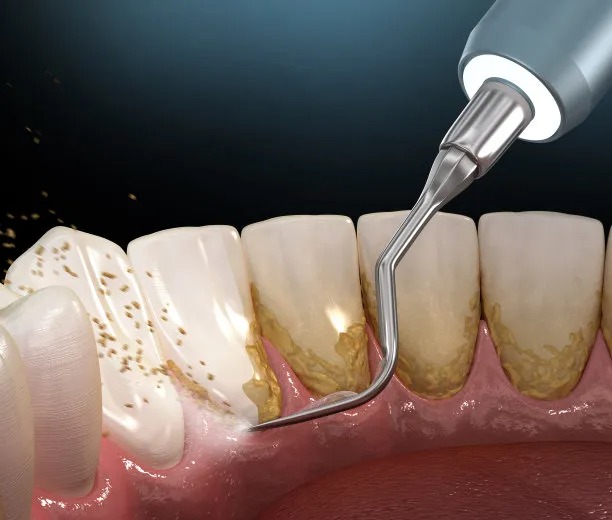Summary: Dental fillings are a common dental procedure essential for restoring decayed or damaged teeth. However, achieving optimal results and minimizing discomfort requires careful consideration and preparation before the procedure. This article outlines essential precautions, including choosing an experienced dentist, understanding the types of filling materials available, preparing for post-procedure care, and addressing any anxiety to ensure a smoother experience. Each precaution plays a crucial role in enhancing the outcome of your dental filling treatment, ensuring not only a healthy smile but also a comfortable journey towards dental health.
1. Choosing the Right Dentist for the Job

Selecting a qualified and experienced dentist is the first and foremost precaution before undergoing a dental filling. An experienced dentist can assess the extent of the tooth decay, recommend the appropriate filling material, and perform the procedure competently to minimize complications.
Researching potential dentists by checking their qualifications and patient reviews can significantly impact the treatment results. A practitioner with a solid reputation will usually adhere to best practices and prioritize patient comfort, enhancing satisfaction post-treatment.
Additionally, consider scheduling a consultation to discuss any concerns you may have. This not only helps in building a rapport with the dentist but also allows you to clarify doubts about the procedure, ensuring you are well-informed and confident in your choice.
2. Understand the Types of Filling Materials
Filling materials vary significantly, including amalgam, composite resin, glass ionomer, and porcelain. Each material has unique properties, advantages, and disadvantages that can impact both the aesthetics of the tooth and its strength over time.
Discussing these options with your dentist helps tailor the choice to your specific needs. For example, while composite resins are aesthetically pleasing for front teeth, amalgams may be more durable for back molars where biting pressure is more significant.
Understanding the pros and cons of each material can lead to informed decisions, ensuring you not only restore functionality but also achieve the desired look of your dental fillings.
3. Preparing for Post-Procedure Care
A significant part of ensuring optimal results from dental fillings lies in preparing for aftercare. It is essential to follow the dentist鈥檚 recommendations regarding what to eat and drink immediately following the procedure, as the anesthesia used can affect your ability to chew and swallow.
Be mindful of any discomfort or sensitivity that may occur post-filling. Your dentist may recommend over-the-counter pain relief or a restricted diet for a few days to minimize these sensations. Proper aftercare can significantly reduce the risk of complications, such as further decay or sensitivity issues.
Additionally, scheduling follow-up appointments allows your dentist to monitor the filling and ensure it integrates well with your bite. This continued care is crucial to maintaining the health of your tooth and the effectiveness of the filling.
4. Addressing Anxiety and Stress Management
Many patients experience anxiety at the thought of dental procedures, which can negatively impact the overall experience. Addressing this anxiety is an essential precaution in ensuring a smooth treatment process.
Openly communicating your fears with your dentist can lead to strategies that alleviate anxiety, such as sedation dentistry or progressive muscle relaxation techniques. Being proactive in managing anxiety makes the experience less daunting and allows for better cooperation during the procedure.
Additionally, bringing a friend or family member for support on the day of the procedure can create a more comforting environment. Establishing relaxation techniques before your appointment can further equip you to manage any nervousness that may arise, ensuring you focus on the health and longevity of your smile.
Summary:
In conclusion, ensuring a successful dental filling requires a multifaceted approach that encompasses diligent preparation and informed decision-making. By selecting the right dentist, understanding filling materials, preparing for aftercare, and addressing anxiety, patients can significantly enhance their experience and outcomes. Each of these precautions contributes to a positive dental journey, ultimately resulting in a healthier smile.
This article is compiled by Vickong Dental and the content is for reference only.
Vickong Dental
Vickong Dental is a large medical group established in Hong Kong in 2008 by professors from well-known medical universities in Guangdong and Hong Kong, as well as medical doctors from key national '985' universities (including Master's supervisors and senior professors). The chain of branches brings together expert dentists with PhDs and Master's degrees from Hong Kong and Mainland China, committed to providing high-quality dental treatment.
"Vickong Dental Practices the University Motto of 'Healing and Serving Society,' with a Stable Operation for Sixteen Years. It Has Been honored with Hong Kong Enterprise Leaders's Choice,' and is a Global Trusted Implant Center for the Nobel Implant System. Recommended by Hong Kong Metro Broadcast and Guangdong Television, it Serves Customers from Over Thirty Countries and Regions, Gaining the Trust and Favor of Citizens from the Guangdong-Hong Kong-Macau Greater Bay Area and Surrounding Cities.

Thousands of customers' unanimous praise
The most recognized and highly recommended dental service by customers in the Guangdong-Hong Kong-Macau Greater Bay Area
We Ensure You Receive Detailed Care and Attention Here
Hong Kong standards, Shenzhen prices, Your Trusted English-speaking dentists

Vickong Dental Medical-Grade Instrument Disinfection Process
Vickong Dental Medical-Grade Instrument Disinfection Process

Vickong Dental Chain: A Warm and Comfortable Environment for Treatment






Appointment Hours

Q&A
Why choose Vickong Dental?
Vickong Dental practices the university motto 「Medicine to Benefit Society」, with each branch bringing together highly qualified dentists with doctoral and master’s degrees from Hong Kong and the Mainland, and has maintained seventeen years of steady operation。Recipient of 「2024 Hong Kong Enterprise Leaders Brand」, 「2025 Hong Kong Enterprise Leaders Brand」, a Nobel Biocare Global Trusted Implant Center, and a brand recommended by Metro Radio Hong Kong and Guangdong TV。
To date, we have served customers from more than thirty countries and regions,earning exceptionally high word-of-mouth recognition and trusted recommendations from residents across the Guangdong-Hong Kong-Macao Greater Bay Area and surrounding cities
We have eight major branches in Zhuhai、Shenzhen,and a consultation and service assurance center in Hong Kong,so you can book a free consultation at any time for any questions,which is very reassuring.
If I do not accept the quotation after the CT scan, will I be charged??
No! As long as the actual treatment has not started, you will not be charged any fees.
Will there be any additional charges during the treatment process?
No, there won’t be any additional charges. Before treatment begins, we will clearly explain the treatment plan and its corresponding fees. Only after the patient agrees and signs the consent form will we proceed with the dental service.
Can I pay in Hong Kong dollars?
Yes. Vickong Dental accepts payment in Hong Kong dollars. The amount will be converted based on the exchange rate of the day, and the applicable rate will be clearly communicated to you in advance.
Can I reschedule my appointment at any time?
Yes. Please contact us via **WeChat** or **WhatsApp** as early as possible, providing your original appointment time and details, along with your preferred new date and time slot for rescheduling.













